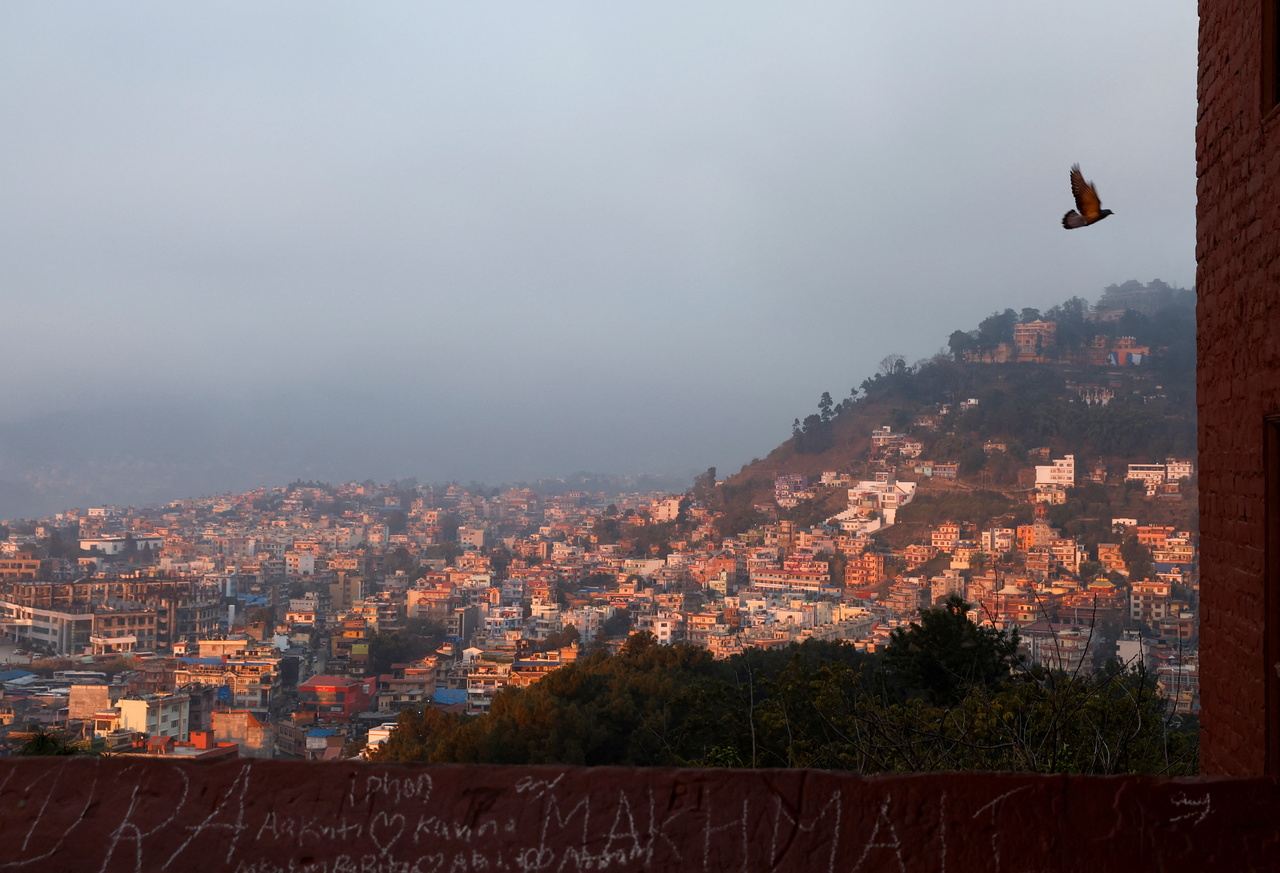Editorial Notes
Nepal's democracy on a slippery slope: Kathmandu Post
The paper says there is an urgent need to redefine internal politics in Nepal, especially the current form of alliance politics.
Sign up now: Get insights on Asia's fast-moving developments

Sunlight illuminates a part of the Kathmandu valley, Nepal, on Feb 6, 2022.
PHOTO: REUTERS
KATHMANDU (THE KATHMANDU POST/ASIA NEWS NETWORK) - Nepal marked the 16th Loktantra Diwas on Sunday (April 24).
This time as it coincides with the preparation for the local elections, we need to consider what it took to arrive at where we are and how even after all these years. Political parties that claim to support and strengthen democratic values themselves lack the ethical discipline to ensure that shortcomings and malpractices are rooted out from local governance.
And yet, this year, as we head to hold the local elections on May 13, the political parties, through the practice of alliance politics, have shown that they harbour no intentions of increasing democratic space in local governance and, in turn, strengthening democratic values.
On the contrary, their intention of going into alliance politics seems to be nothing more than a ploy to revive the infamous all-party mechanism. The same tool allowed political parties to control local resources set aside for development purposes. Instead of channelling them for development, the political parties had a field day sharing the spoils amongst themselves at the cost of development.
However, this time, formal alliances will only legitimise the practice of misappropriating resources amongst the parties through voting. The political parties are bent on winning the elections for winning rather than for the higher purpose of serving the public. It is nothing but a gimmick to hoodwink the public into believing that a democratic process has been upheld.
But in essence, what it lacks is the spirit in which it is practised. The previous set-up of an all-party mechanism that had handpicked members of political parties was disbanded by the then government in 2012 due to reports of rampant corruption following directives from the Commission for the Investigation of Abuse and Authority (CIAA). But now, earning the legitimacy of being elected representatives, there is a high likelihood that representatives of the same parties will undoubtedly collude to obstruct the CIAA if necessary, and push to turn democracy into a kleptocracy.
It took nearly 20 years for the local elections to be held in 2017, the first one under the new constitution. This time around, the people's enthusiasm will be lacking while they had welcomed the first after 20 years in the earnest hope that politicians would mend their ways.
But time and again, the general populace has been left with nothing to do but savour the bitterness of the political parties' absolute non-compliance with acceptable norms and governance standards. There is an urgent need to redefine internal politics in Nepal, especially the current form of alliance politics. It is nothing but degenerative dirty politics which is aimed at remaining in power by hook or by crook.
Whether at the federal, provincial or local level, all their actions point at power grabbing and subverting the electoral process. All the sacrifices made by the people to establish an egalitarian society have just been reduced to mere symbols.
While politicians carefully carve the current system to their advantage, it has become evident that the only ones that are benefiting are the politicians and those close to the source of power, while the people that they infer to serve, continue to be used as vote banks as mere subjects than citizens.
- The Kathmandu Post is a member of The Straits Times media partner Asia News Network, an alliance of 23 news media organisations.


